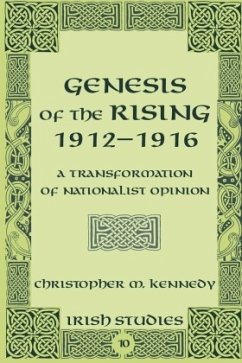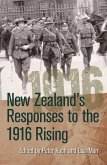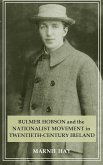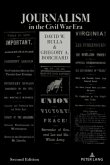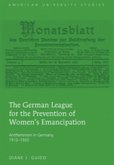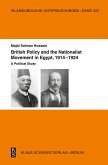The Easter Rising of 1916 had a lasting effect upon Ireland, with many viewing it as a watershed in the history of modern Ireland and concurring with Yeats that a «terrible beauty was born». Seeking to clarify the state of nationalist opinion in the period before the Rising, Genesis of the Rising is as much an undertaking in social psychology as it is a social and political history. It strives to debunk many longstanding theories, most significantly the turning of the tide thesis, which asserts that British blunders in the wake of the failed Rising turned the tide in public opinion toward the course envisioned by the Rebels. Genesis of the Rising contends that as early as 1912, with the introduction of the Third Home Rule Bill, through the start of the Great War, and right up to Easter 1916, the tide in nationalist opinion had been turning, albeit silently, and that the Rising was a catalytic force that accelerated an already ongoing process. It reveals a dichotomy in nationalistopinion between covert views and misleading, overt opinion when it suggests that it was the Rising and the executions that subsequently forced nationalist opinion to show its true colors. In effect, the tide had begun to turn long before Easter 1916; and constitutional nationalism, as represented by the Third Home Rule Bill and the Irish Parliamentary Party, was giving way to some aspect of physical-force nationalism.
«In this carefully researched and thought-provoking study, Christopher M. Kennedy penetrates behind the familiar façade of ideologically driven assertions concerning Irish public opinion and the Easter Rising of 1916. He casts a cold eye on the strident claims that too easily pass for history, as he explores the evidence to reveal realities that make his work indispensable for understanding public moods in the years before the Rising.» (J. Joseph Lee, Professor of History; Director, Glucksman Ireland House; Glucksman Professor of Irish Studies, New York University)
«No historian should take anything at face value or on faith. Christopher M. Kennedy's book proves the value of that basic but often transgressed principle of the profession. His fresh and original interpretation of public opinion in Ireland prior to the 1916 Rising breaks important new ground and yet again shows the importance of coming to the sources with a willingness and an openness to be surprised.» (Dermot Keogh, Professor and Head, Department of History, University College Cork)
«No historian should take anything at face value or on faith. Christopher M. Kennedy's book proves the value of that basic but often transgressed principle of the profession. His fresh and original interpretation of public opinion in Ireland prior to the 1916 Rising breaks important new ground and yet again shows the importance of coming to the sources with a willingness and an openness to be surprised.» (Dermot Keogh, Professor and Head, Department of History, University College Cork)

